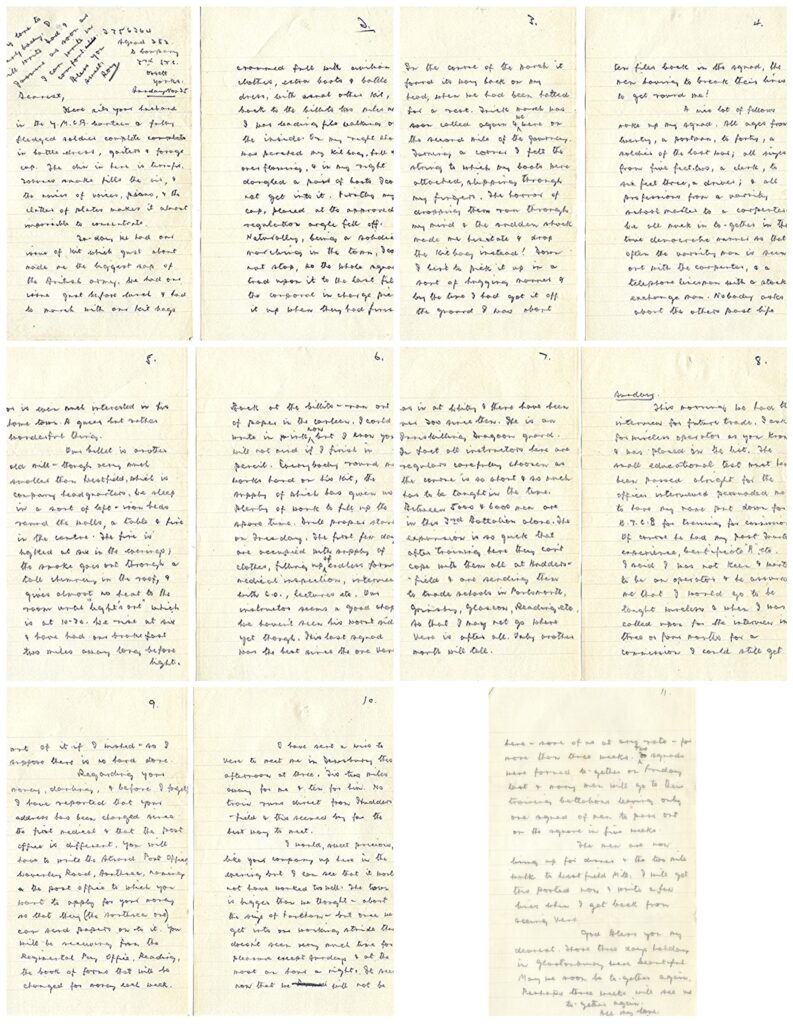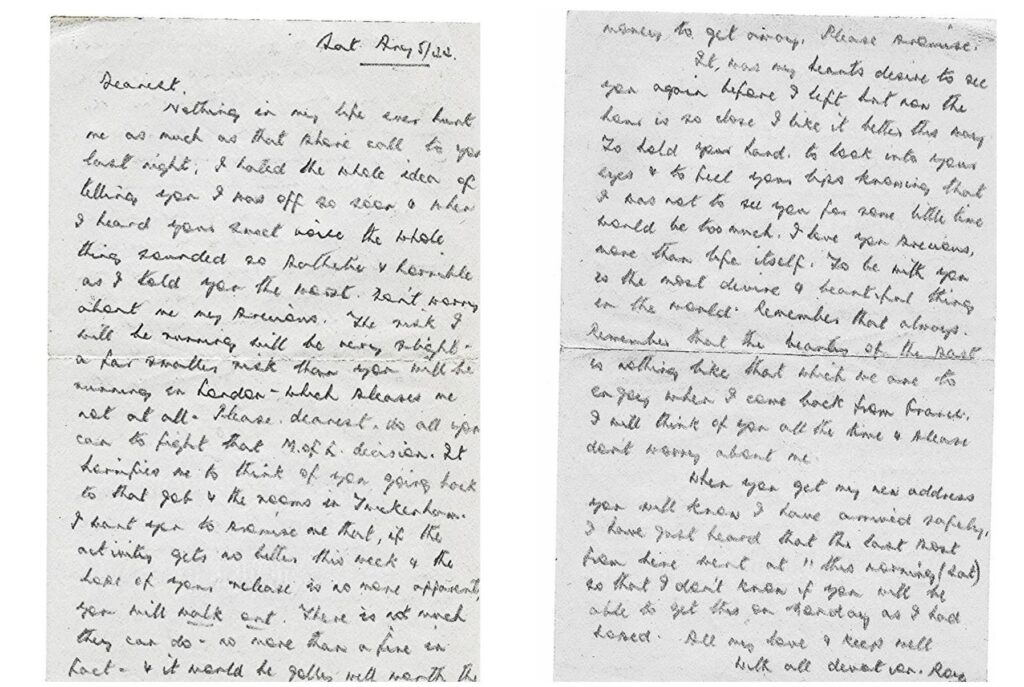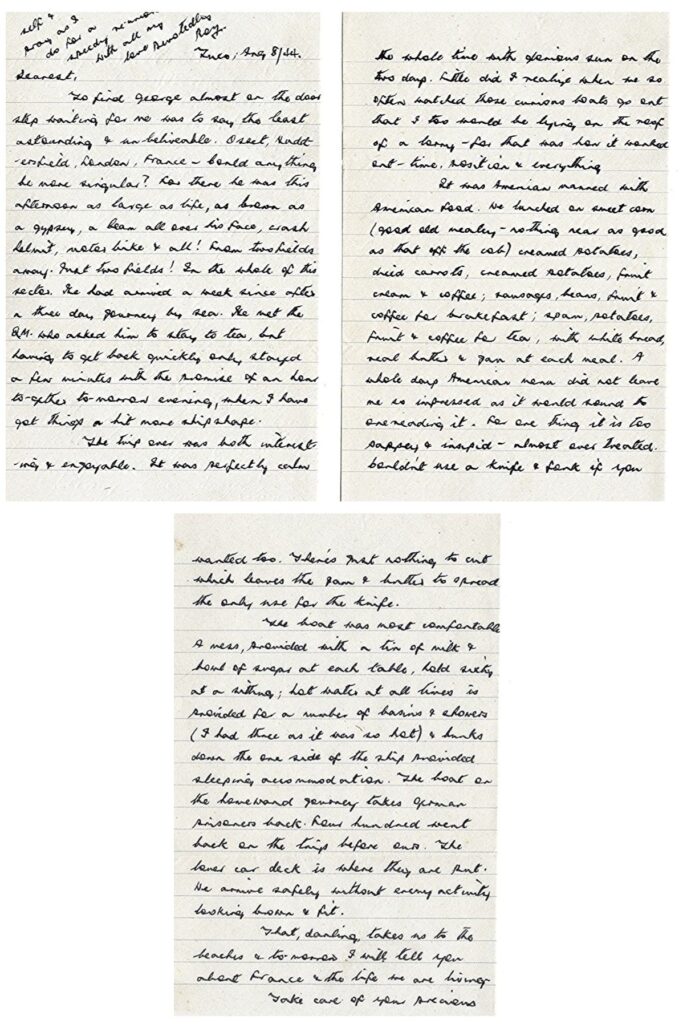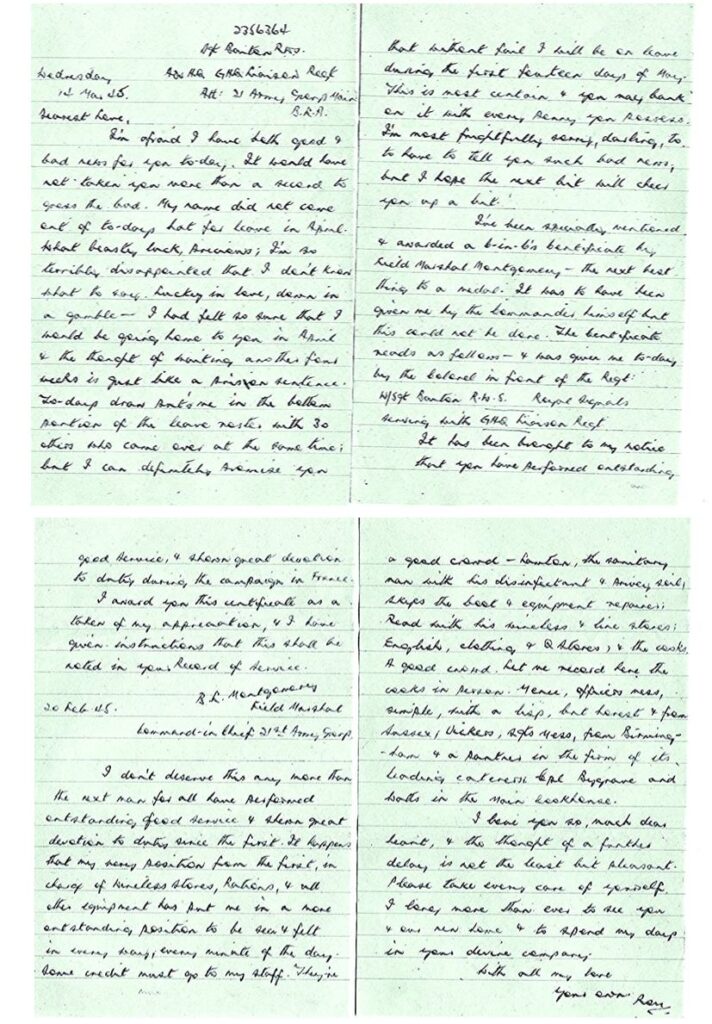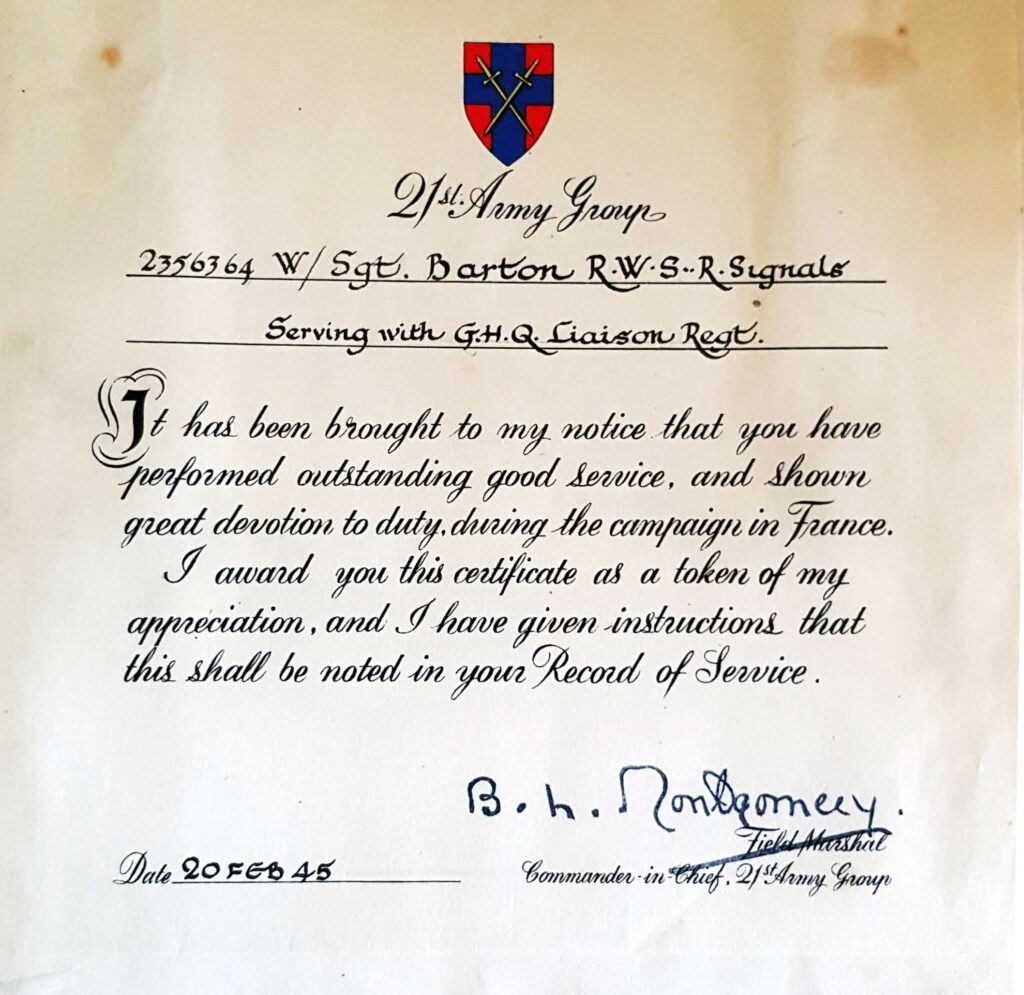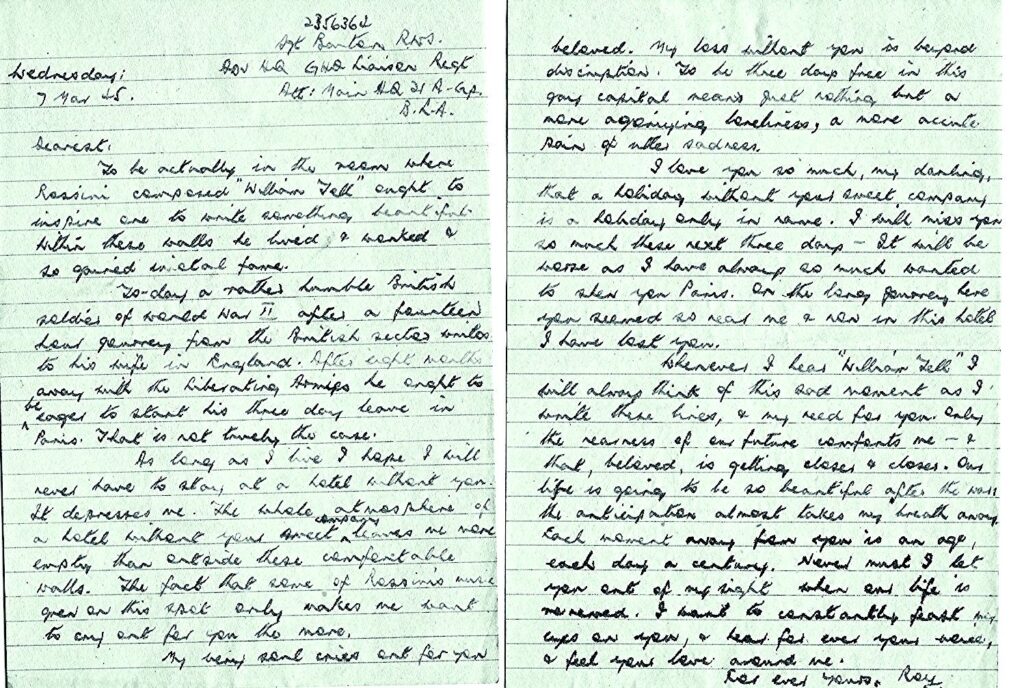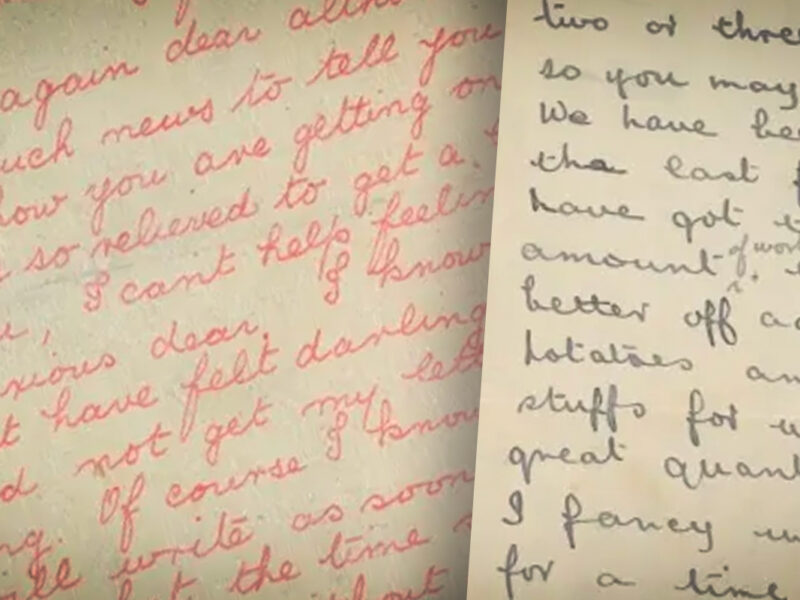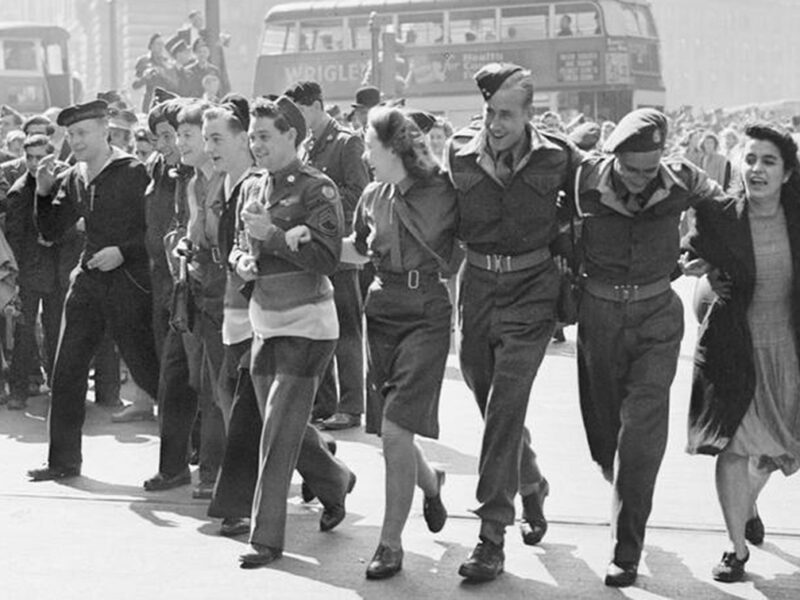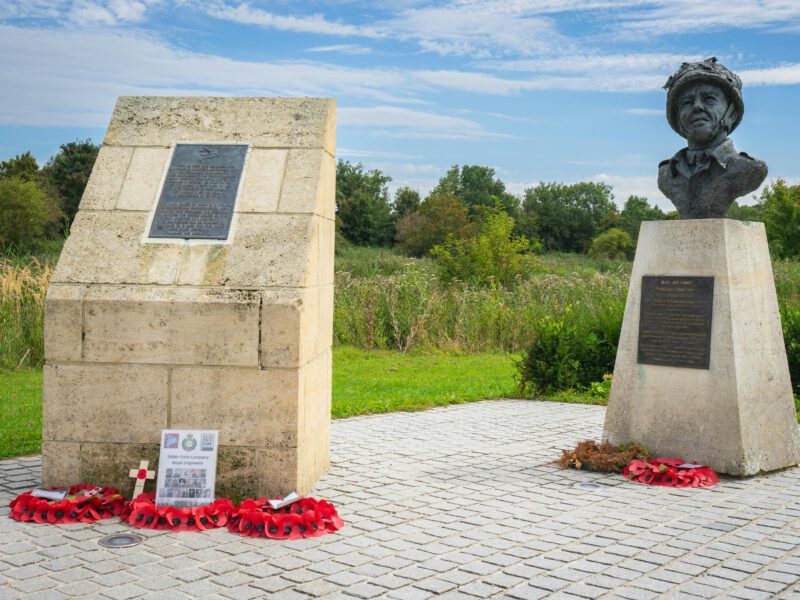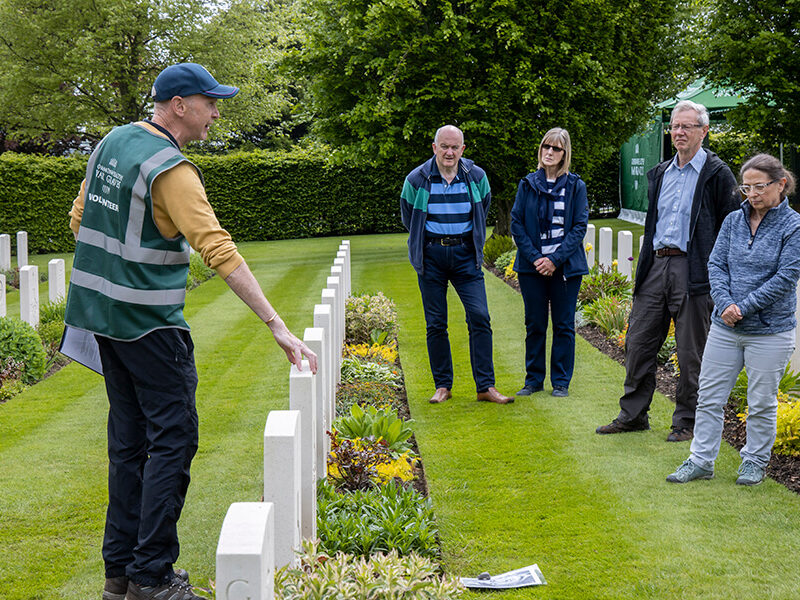Roy Barton was my uncle, and although he died in 2001, only following the death of his reclusive son, have Roy’s 250 letters written during World War Two to his wife Phyllis, come to light (over 110,000 words).
It is not just his letters either. Roy kept a scrapbook of photos and memorabilia from his family and service life that add detail and great interest to the story he tells in the letters.
Roy had been married just three years when the Second World War started. And the first 25 letters detail his Basic Training in Yorkshire. The rest (over 220) constitute a wartime diary of one man’s war over 400 days written from the relative safety of Field Marshal Montgomery’s HQ in Normandy, Belgium and into Germany.
Roy was a civilised and emotionally intelligent natural-born writer educated at public school. He describes in detail the demands of each day whether in Basic Training or in Northern Europe; the destruction of German armour at Falaise, the French peasant farmers, Belgian black marketeers, leave in Paris and Brussels, the characters and gossip from his mess as well as their hopes for a ‘cottage in the country’ and plans for a baby at the war’s end.
Much devoted to his young wife and with little in the way of other evening entertainment or distractions, Roy wrote letters almost daily to Phyl detailing the events of his days of Basic Training. Here is the first of Roy’s letters. Written from his Basic Training Camp in Yorkshire.
Then, in August 1944 Roy lands with Field Marshall Montgomery’s HQ in Normandy. Roy was the Quartermaster Sergeant in the GHQ Liaison Regiment known as ‘Phantom’ attached to Montgomery’s HQ Main of 21st Army Group. Over the next 430 days until October 1945, Roy writes to Phyl over 200 letters as he travels through Normandy, Belgium, Holland and into Germany.
In this letter Roy describes his arrival in Normandy on 7th August 1944 attached to Royal Signals ‘Phantom’ Regiment of Montgomery’s 21st Army Group HQ (Main).
Extraordinarily, his brother George is camped close by and comes to greet him having landed some weeks previously. Roy’s attention to detail is extraordinary in the midst of war as he describes the ferry, the ship’s US processed food, the weather, etc. One can feel the exuberance of the wartime spirit in his writings.
In this letter Roy gives Phyl the bad news about no UK leave yet. But also that he has been awarded a Commander in Chief’s Certificate for ‘Outstanding good service’ by Field Marshal Montgomery. Typical of self-effacing Roy, he wants to praise his own staff for their contribution to his own award:
This love letter is sent from Paris where Roy is enjoying three days of leave after an exhausting winter of activity following the Ardennes offensive by the Germans. He is in the ‘room where Rossini composed ‘Willian Tell’ ‘, but the ache of missing his wife almost overwhelms him. ‘As long as I live, I hope I will never have to stay in a hotel without you.’ Beautifully expressed passion for his wife, Phyllis.
Other letters describe Belgian black marketeers, leave in Paris and Brussels, the characters and gossip from his mess, the stresses of war and its effects on him. Through it all Roy nevertheless finds many ways to express his love and give Phyllis the sweet anticipation of the letterbox rattle.

